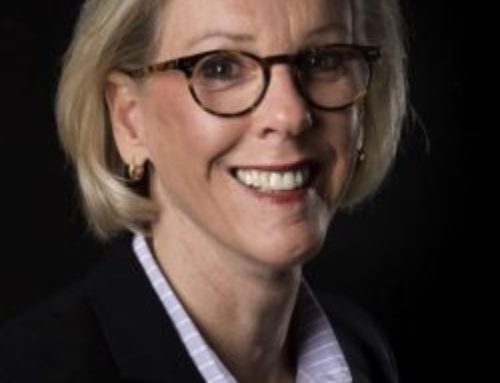For a baseball player who wasn’t supposed to “make it” — he was too slow, a defensive liability and had no pop in his bat — Wade Boggs’ determination has helped him reach this monumental milestone.
By JOEY JOHNSTON
The Tampa Tribune
(c) Tampa Bay Times. Originally published Aug. 8, 1999.
A long time ago, in a galaxy far away – Pawtucket – Wade Boggs was hitting .330 in the minors. This was not unusual. He hit .330 a lot. He was in the minors even more.
One day, he was swinging in the cage. Always swinging in the cage. A coach walked by and spoke his mind.
“You’ll never get anywhere hitting like that.”
The coach’s name? Not important. What matters is the man has just been proven wrong for the 3,000th time.
Maybe this moment should be dedicated to the doubters. That coach wasn’t a lone voice. There were plenty of baseball people who believed Boggs wouldn’t get one big-league hit, let alone 3,000. He was too slow. A butcher at third base. Not enough power.
He was not protected on Boston’s 40-man roster after the 1980 season. Any team could’ve claimed him for $25,000.
There were no takers.
Others might have been crushed, sapped of incentive. Boggs? He worked harder, almost maniacally. He took 100 extra grounders each day. He became a respectable baserunner. He never, ever wasted an at-bat.
“I had to hustle and do all the things to open some eyes,” Boggs said. “I wasn’t the fastest kid. I didn’t hit the ball 800 feet. I couldn’t throw like Dwight Evans. I was labeled that I would never play third base in the big leagues. I had all these things working against me. But somehow, I still did it.”
Even during the good times in Boston, he battled criticism. He was branded a selfish stats-monger, a hitter who didn’t really help the team.
From 1983, Boston Globe columnist Bob Ryan: “There is no evidence to suggest [Boggs] is a man you want to send up there in the late innings with men in scoring position. In fact, some people are suggesting he is naught but a glorified Matty Alou. The immortal Matty was the greatest spacer-out of base hits of all time.”
Footnote: Boggs was hitting .374.
“You can’t argue with Wade’s numbers,” said former Kansas City Royals third baseman George Brett, the Hall of Famer.
But …
“Say it’s 2-and-0, a runner in scoring position. He might get a pitch to hit, maybe not a strike, but a pitch to hit. He’ll probably look it over and take. He’ll get walked. Same situation, I’m probably up there hacking. I might swing and miss, I might hit it out, but I’m hacking.
“I’m not saying he’s wrong. Just from a different school. Like I said, you can’t argue with his numbers. If he doesn’t like the pitch, he’s not swinging. I wasn’t nearly that disciplined. I’m not sure many hitters were. Not to that degree.”
His patience confounds opponents. If he thinks the ball is six inches off the plate, it’s six inches off the plate. He’s not swinging. He’s 19th all-time in walks, having recently passed Hank Aaron.
His other numbers raise ghosts.
His 240 hits in 1985 remain the most by a major-leaguer in the past 68 years, behind the 241 of Brooklyn’s Babe Herman. His seven 200-hit seasons are tied with Lou Gehrig, Charley Gehringer, Rogers Hornsby and Paul Waner for the fourth-most in major-league history. His 187 singles in ’85 are an American League record and second-best behind Waner’s 198 in 1927.
He had four 200-hit, 100-walk seasons – one more than Babe Ruth, one less than Gehrig. Boggs appeared in 12 All-Star Games – only Brooks Robinson (15) had more at third base. He’s one of four players to begin a career with 10 or more consecutive .300 seasons, along with Waner (12), Al Simmons (11) and Ted Williams (10).
“Wade Boggs is an all-timer, a first-ballot Hall of Famer,” said former pitching nemesis Dennis Eckersley, who did the unthinkable in the 1988 AL playoffs. He struck out Boggs with the bases loaded to clinch an opening-game victory. Headline: “Man Bites Boggs.”
“I got him out a few times,” Eckersley said. “But he got me a few times, too. He stood the test of time. That’s the thing I like. We all have ups and downs. But that guy, he was in there for so long with so much consistency.”
Bob Boone, a former catcher and manager, said he considered Boggs to be the toughest out in baseball.
“We would bust him inside, then go low and away on the corner … and he’d always find a way to whack it off that wall in Boston,” Boone said. “It was like a joke. Sometimes I’d just call the pitch and watch. I knew he was going to hit it. I just wanted to admire his ability. During that one stretch of years in Boston, he was practically untouchable.”
The Boston years included five batting titles, three division championships and one World Series appearance. Plus, one season that was a mix of anguish and accomplishment.
In 1986, Boggs received a telephone call in the clubhouse at Yankee Stadium. His mother, Sue, had been killed in an automobile accident in Tampa. His world went out-of-focus and baseball meant nothing.
“I didn’t know how long I was going to be out,” he said. “I didn’t know how long the grieving process was going to take. We were coming back from the funeral that day and my dad [Win] patted me on the back and said, “Son, it’s not often you have to buy a coffin for your mother on her birthday.’ Then he said, “It’s time for you to go back to work.’ “
Boggs and his father returned to Boston for a home series with the Yankees. As he stepped to the plate in the first inning, he received a two-minute standing ovation from the Fenway Park fans.
“That really just sunk in, how nice these people can be,” Boggs said. “It really made me feel good.”
The season caught fire. Boston won the AL pennant, rallying past the California Angels after coming within one strike of losing the series in five games. Boggs said he’ll never forget the jubilation of reaching the World Series, of looking beyond the right-field roof and seeing the Prudential building in downtown Boston illuminated with a “No. 1” symbol.
Boston came within one strike of winning its first World Series since 1918. It didn’t happen, of course. Everyone remembers Bill Buckner’s error at first base. And they also remember Boggs weeping in the Shea Stadium dugout following Game 7, a release of emotions that had little to do with baseball.
The season was over. Now he was going home to face life without his mother.
“There was a time when I lost my focus, then I was just going on overdrive for so long,” Boggs said. “When it ended, the bottom fell out for me emotionally. I needed that offseason more than any other in my career to kind of regroup.”
Boggs always thought he would finish his career in Boston, like the Beantown icons, Williams, Carl Yastrzemski and Jim Rice. He refers to his time in Boston as “10 good years and one bad one.” In 1992, with the Red Sox refusing to offer more than a two-year contract, Boggs entered free-agency with a .259 average, his worst in the big leagues. It was the first time he buried himself with pressure, trying to accomplish too much. The fans turned on him.
“I got a hit my last time up that season,” Boggs said. “I ran in the clubhouse, took off my uniform and knew that I’d never be back. Once I showered in there the last time, I knew it was over. But I knew I’d come in and sit in the other dugout.”
The Yankees and Boggs got along famously.
He played five seasons in New York, leaving with a .313 average that tied Bill Dickey for sixth-best in club history. New York also is where he earned his first Gold Glove in 1994 – he was the oldest first-time winner among non-pitchers in the 41-year history of the award – then he repeated the honor in 1995.
“When you have a motivated, professional player like Wade Boggs, you really appreciate his presence,” New York manager Joe Torre said. “He was loved in New York. People predicted the opposite because of his history with the Red Sox. But the fans just loved the way he played the game. He’s still a favorite there.”
Boggs became a platoon player at third base with Charlie Hayes in 1996, but knew his role and contributed the game-winning, bases-loaded walk in the World Series’ pivotal Game 4. When the Yankees clinched it at home, Boggs produced the most memorable snapshot of his career. During the on-field celebration, he hopped aboard a police officer’s horse and rode bareback.
“I will never forget that sight,” Yankees center fielder Bernie Williams said. “I can still see it in my mind. He was overwhelmed by emotion. I’ve never seen anyone as happy as that. He played so well his whole career. Now he finally had the championship. It was beautiful.”
Yankee Stadium was the site of Boggs’ worst moment. It’s where he heard about his mother’s death. And now?
“Once I took the final tour on that horse and looked up, I looked right into my mother’s eyes,” Boggs said. “It was the weirdest sensation. I just looked up and saw her face.”
Boggs had his championship ring, but there was one more change remaining. Tampa Bay finally got its long-awaited baseball franchise with the Devil Rays. On Dec. 9, 1997, Boggs signed as a free-agent. He was coming home.
“For so long, I traveled and picked up the family and had two households,” Boggs said. “We had to find transportation, dishes for this place, towels for that place. It was like uprooting your family and saying, “Here we go again,’ like the Beverly Hillbillies.
“Now the family just hangs out by the pool. You get in the car, drive across the bridge and play a game and go home. It has been fun. Being able to play in front of the hometown fans is a nice experience that not everyone has a chance to do.”
Now that his cherished 3,000-hit milestone has been achieved, one thing is clear. He has overachieved well beyond the early projections, which look pretty silly now.
“It’s a nice feeling,” he said. “When people look back on my career, they’ll say this, they’ll say that. But the big thing they’ll say is, “He’s a member of the 3,000-hit club.’ A lot of people try to get there, and a lot of people fail.”
Not Boggs.
Remember those words?
“You’ll never get anywhere hitting like that.”
Boggs chose not to listen. His determination got him to the major leagues. His perseverance got him to 3,000 hits. And his distinguished resume will get him to Cooperstown.
No doubt.





